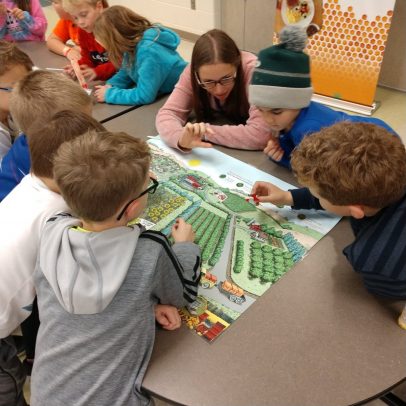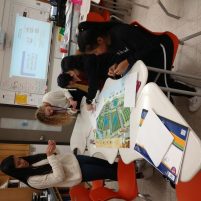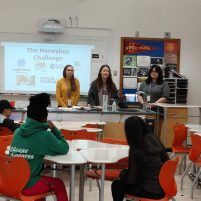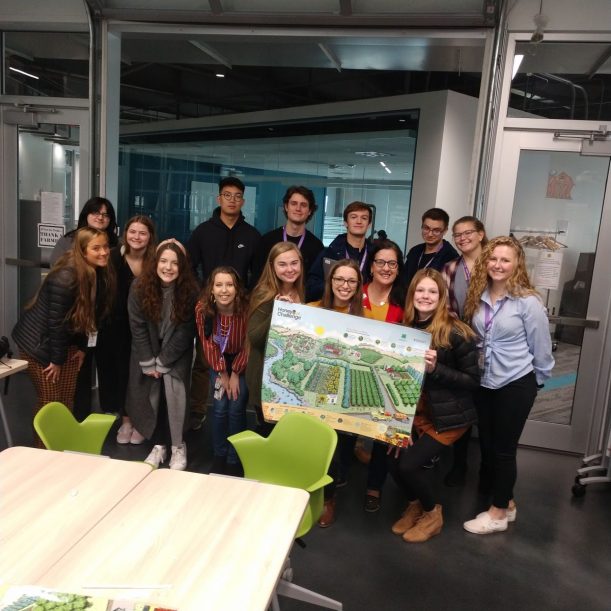Eighteen Waukee APEX students worked to increase pollinator habitats and populations through a Community Pollinator Event on November 25 and 26.
The event featured teen leaders from Waukee APEX leading over 500 elementary students though pollinator educational activities to spark excitement and awareness of pollinators and pollinator gardens for youth who have likely never been involved in agriculture before. Youth were challenged to learn how increasing biodiversity, specifically by increasing habitat for pollinators, benefits the food supply and agriculture.
The collaborative, hands-on, Community Pollinator Event helped participants understand why pollinating insects are an essential component in food production and play a significant economic role in agriculture. Youth learned about ways to increase biodiversity and establish their own pollinator gardens, ensuring that pollinators have access to food and nesting sites and habitat is available for other animals as well.
The Community Pollinator Event was part of the 4-H Pollinator Habitat Program presented by National 4-H Council and Corteva Agriscience. The program aims to engage youth on the importance of habitat for pollinators and to establish quality pollinator habitat at approximately 50 sites across the country. Students in the Waukee Community School District will have the opportunity to participate in the 4-H Pollinator Habitat Program throughout the coming year as Waukee APEX collaborates with ISU Extension and Outreach to train teen leaders in Cindy Snell’s classroom in both in the fall and spring semesters.
Why Increasing Pollinator Habitats Matters
- Pollinating insects are an essential component in global food production.
About one in every three bites we eat is the result of pollinators. Apples, pumpkins, alfalfa, sunflowers, buckwheat and almonds are just some of the crops that rely on pollinators. - There are many challenges that impact the pollinator population.
Many factors, including habitat loss and pesticide exposure, effect pollinator health and can lead to losses and reduced population. - Pollinators are economically significant for agriculture.
Approximately one-third of all food and beverages are delivered by pollinators and many species of native pollinators and domesticated honeybees are in decline. - Youth can positively impact the future population of pollinators.
By understanding ways to increase biodiversity and establish their own pollinator gardens, youth can ensure that pollinators have access to food and nesting sites and habitat is available for other animals.




